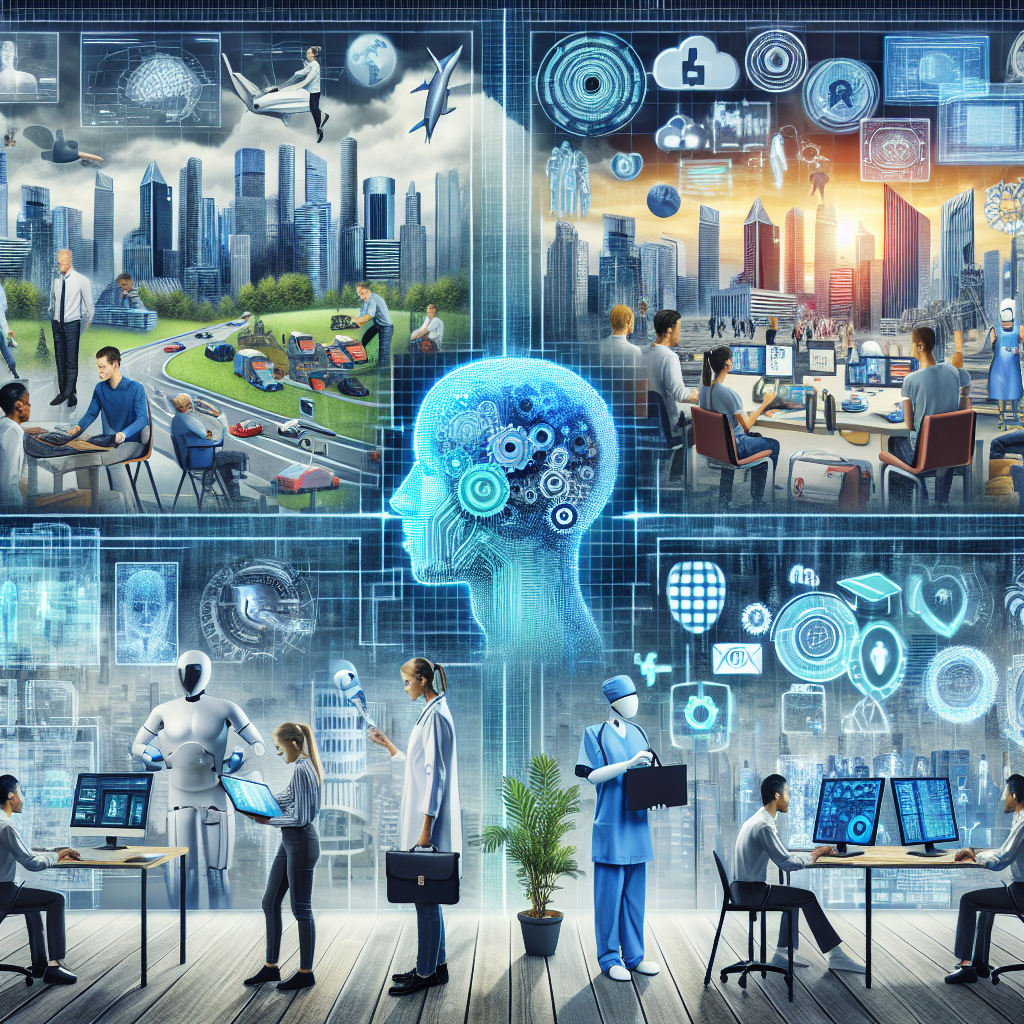The Impact of AGI on Employment and the Economy
Artificial General Intelligence (AGI) is a type of artificial intelligence that is capable of understanding and performing any intellectual task that a human can. While AGI has the potential to revolutionize industries and improve efficiency, it also raises concerns about its impact on employment and the economy. In this article, we will explore the potential effects of AGI on jobs and the economy, and discuss how policymakers and businesses can prepare for this technological shift.
The Rise of AGI
AGI has the potential to significantly impact the labor market in the coming years. As machines become increasingly capable of performing complex tasks that were once thought to be exclusive to humans, many jobs may be automated or eliminated altogether. This has the potential to disrupt industries and lead to widespread job displacement.
One of the key features of AGI is its ability to learn and adapt to new tasks and situations. This means that AGI systems can continually improve their performance over time, potentially outperforming human workers in a wide range of tasks. While this can lead to increased efficiency and productivity, it also raises concerns about job security for workers in industries that are vulnerable to automation.
The Impact on Employment
The impact of AGI on employment will vary depending on the industry and the specific tasks that are being automated. Some jobs may be completely eliminated, while others may be transformed or augmented by AGI technology. For example, jobs that involve routine or repetitive tasks are at a higher risk of being automated, while jobs that require creativity, critical thinking, and emotional intelligence are less likely to be affected.
In the short term, the adoption of AGI technology may lead to job displacement in certain industries. For example, the transportation and logistics industry is already seeing the impact of autonomous vehicles, which have the potential to replace truck drivers and delivery workers. Similarly, the retail industry is experiencing a shift towards automated checkout systems and online shopping, which can reduce the need for human cashiers and sales associates.
However, in the long term, AGI has the potential to create new opportunities and industries that have yet to be imagined. As machines become more capable of performing complex tasks, new jobs may be created in areas such as software development, data analysis, and machine learning. Additionally, AGI technology can enable businesses to innovate and develop new products and services, leading to economic growth and job creation.
Preparing for the Future
As AGI technology continues to advance, policymakers and businesses must develop strategies to address the potential impact on employment and the economy. One approach is to invest in education and training programs that prepare workers for jobs that require skills that are less likely to be automated. This can help workers adapt to the changing labor market and transition into new roles that are in high demand.
Another strategy is to implement policies that support workers who are displaced by automation, such as unemployment benefits, retraining programs, and job placement services. By providing support to workers who are affected by technological change, policymakers can help mitigate the negative consequences of job displacement and ensure a smooth transition to a more automated economy.
Businesses can also take proactive steps to prepare for the impact of AGI on their workforce. This may involve investing in training programs that help employees develop skills that are in high demand, such as data analysis, programming, and problem-solving. Additionally, businesses can explore opportunities to automate routine tasks and streamline operations, which can improve efficiency and reduce costs.
FAQs
Q: Will AGI technology lead to mass unemployment?
A: While AGI has the potential to automate many jobs, it is unlikely to lead to mass unemployment. Instead, AGI technology is more likely to transform the nature of work and create new opportunities in industries that are less susceptible to automation.
Q: How can workers prepare for the impact of AGI on employment?
A: Workers can prepare for the impact of AGI by developing skills that are in high demand, such as data analysis, programming, and problem-solving. Additionally, workers can stay informed about technological trends and explore opportunities for retraining and upskilling.
Q: What can policymakers do to address the impact of AGI on employment?
A: Policymakers can implement policies that support workers who are displaced by automation, such as unemployment benefits, retraining programs, and job placement services. Additionally, policymakers can invest in education and training programs that prepare workers for jobs that require skills that are less likely to be automated.
Q: How can businesses prepare for the impact of AGI on their workforce?
A: Businesses can prepare for the impact of AGI by investing in training programs that help employees develop skills that are in high demand. Additionally, businesses can explore opportunities to automate routine tasks and streamline operations, which can improve efficiency and reduce costs.
In conclusion, the rise of AGI technology has the potential to significantly impact employment and the economy. While there are concerns about job displacement and automation, AGI also presents opportunities for innovation and growth. By preparing for the impact of AGI and implementing strategies to support workers and businesses, policymakers can help ensure a smooth transition to a more automated economy.

